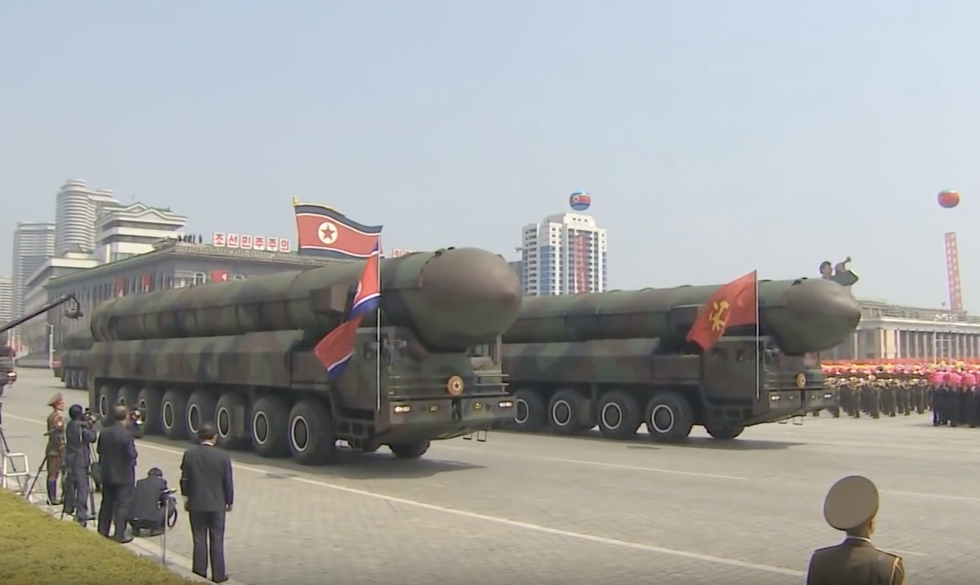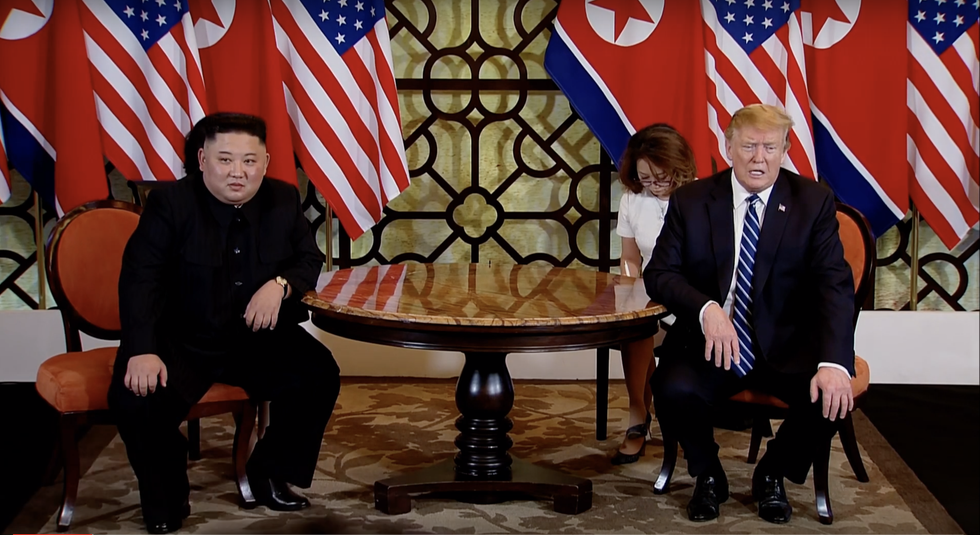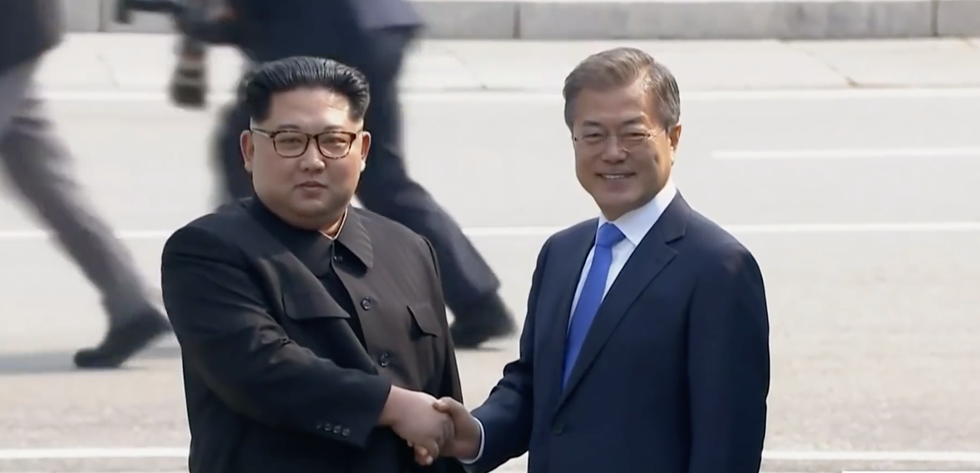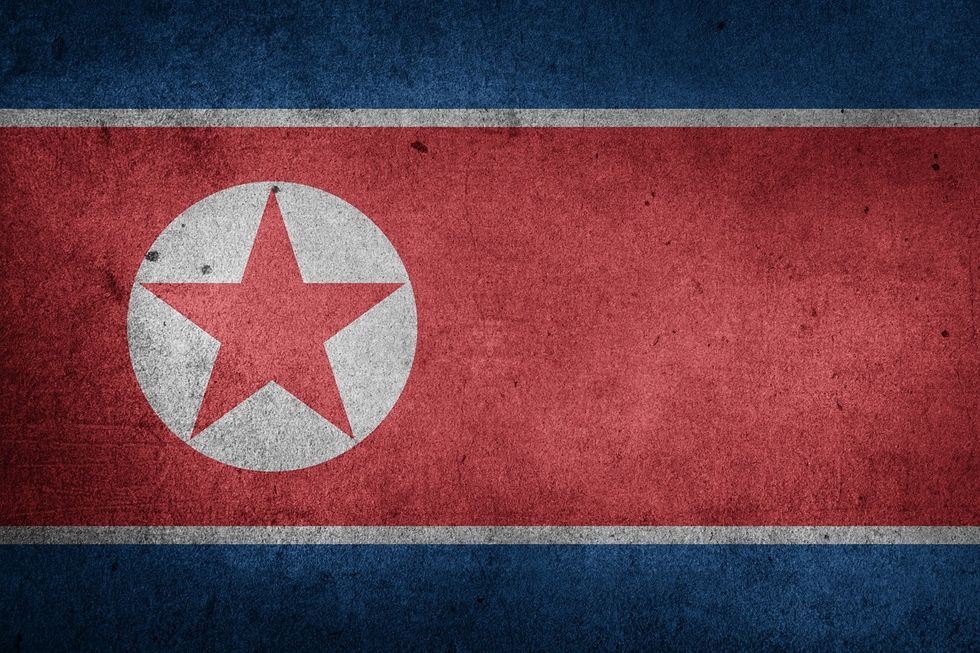It's time to end the Korean War.
American high school history textbooks will typically say that the war between the North and South began in 1950 and ended in 1953 with a draw. However, what they tend to leave out is that the fighting ended with an armistice agreement, not an official peace treaty. Technically, the Koreas remain at war to this day, with the four main belligerents (the two Koreas, China, and the United States) unable to reach an agreement. And for 65 years and counting, despite the multiple overtures for peace, the war's shadow still looms over the peninsula.
Last February, the effort to reach a permanent peace deal was stalled when talks between North Korean leader Kim Jong-un and American president Donald Trump in the Vietnamese capital of Hanoi were cut short by differences over North Korea's nuclear program. The talks' failure marked a low point in the string of negotiations with North Korea that was begun by Kim and South Korean president Moon Jae-in in April 2018. Across the world, many wrote off the Hanoi Summit has the end of yet another failed attempt to make some sort of peace in Korea.
Still, there remains a chance to salvage these negotiations and end the war. Moon and Kim are planning to meet at least once in 2019, and the US could still return to the negotiating table with North Korea; Trump's decision to cancel additional sanctions on North Korea signal a desire for a deal. In order to accomplish an effective framework for a peace deal, however, American policymakers ought to approach the negotiations with three key understandings.
1. There needs to be compromise on the nuclear issue.

Weapons on display in a parade in the North Korean capital of Pyongyang.
https://www.youtube.com/watch?v=whrFgO94M3I
Donald Trump's decision to take a hardline approach meant to force North Korea to completely dismantle all of its nuclear weapons is what made the Hanoi Summit fail. Given North Korea's weak economy and reliance on China to even stay afloat, the possession of nuclear weapons is one of the few sources of clout that Kim Jong-un has on the wider world stage. As the past talks have shown, he does not take the possibility of discarding them lightly
Still, leading up to and following his June 2018 meeting with Trump in Singapore, Kim voiced a willingness to make some sort of compromise on denuclearization and to halt nuclear tests (although intelligence reports suggest that North Korea may have resumed activity in some weapon facilities). In response, Trump halted the war games that the US military regularly conducts with South Korean troops. In light of this interaction, how could North Korea be enticed to stop expanding its nuclear arsenal?
Of course, Kim and Trump will need to meet halfway again, but with bigger bargaining chips. A possible solution could involve the US lowering the number of its troops in Korea and easing some sanctions in exchange for North Korea reducing the size of its nuclear arsenal and allowing international inspectors (such as those from the International Atomic Energy Agency, an international organization advocating for the peaceful use of nuclear energy) to ensure its compliance with peace agreements. Neither side would have all of its demands fulfilled completely, but it would help de-escalate tensions for future negotiations.
2. American partisan politics must stay out of the negotiations in Korea.

Donald Trump meets with Kim Jong-un in Hanoi, Vietnam.
https://www.youtube.com/watch?v=rceK7wfi_NA
There is a caveat that would make the possibility of compromise with North Korea difficult: many in the US Congress have sought to prevent the US military from lowering troops numbers in Korea and, more generally, have not been supportive of Trump's attempts to negotiate with North Korea. Many Republicans have traditionally opposed such talks with the Kim regime, with some such as current National Security Adviser John Bolton taking a particularly hawkish stance on US-North Korea relations.
Lately, however, many Democrats have also been blocking attempts to reach out to North Korea, due in part to their opposition to Donald Trump. Prominent Democratic senators such as Bob Menendez of New Jersey have even called out attempts by South Korea to over economic incentives to the North in order to bring them to the negotiating table. Other Democratic leaders such as House Speaker Nancy Pelosi of California have told their Korean counterparts to be wary of negotiating with the North, much to the delight to right-wing politicians in South Korea who oppose a peace deal.
Of course, there are plenty of reasons to criticize the way in which Trump has gone about the negotiations. The failure of the Hanoi Summit shows why. It is more than reasonable to question Trump's often inconsistent approach to North Korea, which seems to change at his whim at times, and his motivations; achieving a peace deal would no doubt enhance Trump's foreign policy reputation, something Trump realizes and likely craves.
That, however, is no excuse for sabotaging a good chance to reach an agreement with the North Korean regime. Regardless of Trump's motivations, ending the Korean War is the best way to lower the risk of armed conflict on the peninsula. American negotiators will need the support of members of Congress to craft an effective agreement with North Korea, and those members who wish for peace but do not wish to give Trump a foreign policy victory should remember not to allow partisanship to cloud their judgment.
3. The best thing the US can do is to make it as easy for the Koreas to form a relationship on their own as possible.

Kim Jong-un (left) and South Korean president Moon Jae-in shake hands at the village of Panmunjom in the Demilitarized Zone (DMZ).
https://www.youtube.com/watch?v=215R2F1JjeE
Perhaps one of the greatest tragedies of the conflict on the Korean Peninsula is the way in which a nation having just been liberated from decades of the Japanese occupation was torn apart in large part due to the power struggle between outside powers (namely the United States, China, and the Soviet Union). Even today, the rivalry between China and the US (as well as American allies like Japan) hinders some possibilities for peace and cooperation in Korea.
Seeing that these outside powers make achieving peace difficult, it is clear that it should be up to the Koreans (from both the north and south) to decide how the two states should interact with each other. It is imperative that both China and the United States truly value allowing the people of Korea to have the power of "determining the destiny of the Korean nation on their own accord" as stated in the Panmunjom Declaration signed by Moon Jae-in and Kim Jong-un in April 2018.
Ultimately, it should be up to the Korean people to work out the relationship they choose to have with their follow Koreans on the other side of the DMZ. Despite the growing differences between those in the north and in the south, they still share a common nation and are best-suited to make the deals that would be in the peninsula's best interest. The United States should respect this right but working with China and the Koreas to end the war and leaving the Koreas to engage with each other as they wish.
To be clear, this call for an actual peace deal in Korea should not be seen as a rejection of or indifference to the charges of human rights abuses and other authoritarian activities frequently directed toward the current regime in North Korea. These charges are legitimate concerns and should not be left out of the conversation in any peace deal.
However, these abuses are unlikely to change unless the North Korean regime is either overthrown or incentivized to change their ways. Given the potential of a bloody and violent war in the former scenario, the latter seems to present the best path towards changing the practices of the North Korean regime.
Above all, embracing these understandings when negotiating would allow the US to cease formal hostilities and finally create a base for peace on the Korean peninsula.
It has been 65 years and counting since the ceasefire. It's time to end the war.

















